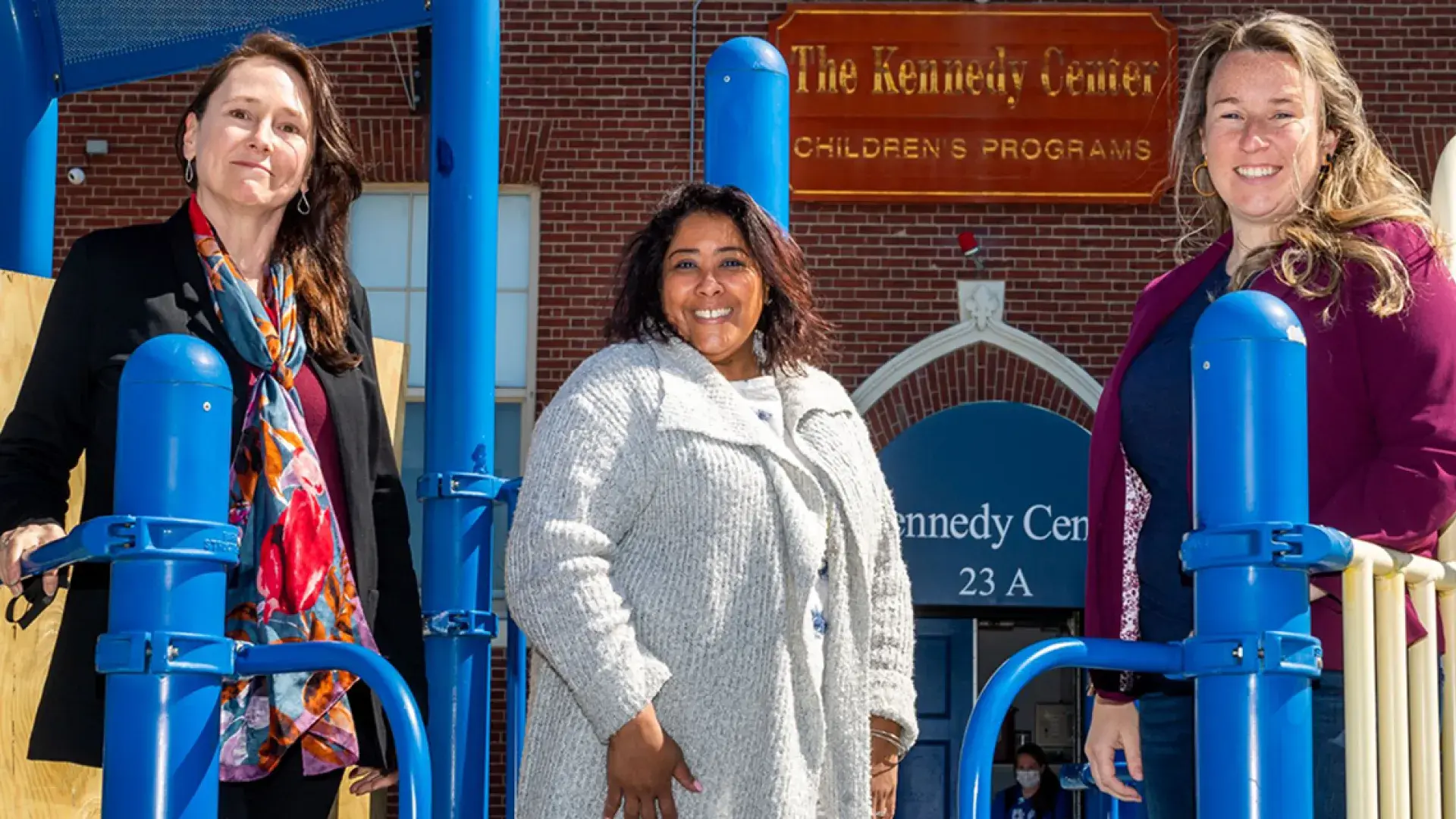
Early intervention programs significantly improve chances of optimal child development and academic success by identifying specific developmental areas that need attention right at the start of a child’s education. With this in mind, the Charlestown office of accounting firm RSM decided to make early intervention a philanthropic priority in 2021. RSM partnered with MGH Institute of Health Professions and the Kennedy Center to fund a new early intervention initiative to benefit children in Charlestown.
Tapping the generosity of RSM, the academic expertise of the MGH Institute, and the early education work of the Kennedy Center, the program has one goal: improving academic performance of under-served children in Charlestown.
“What I think is so powerful about this model is its business, academic, and community emphasis” says MGH Institute President Paula Milone-Nuzzo. “Each of the three organizations has unique resources that can be pooled to solve a pressing problem for local children.”
Right now, the initiative is in the fact-finding stage to determine the level of need and services required for the 200 young children (ages 0-5) that the Kennedy Center serves. Dr. Cathy Leslie, an assistant professor in the MGH Institute’s occupational therapy doctoral program, is leading the initiative in collaboration with faculty and graduate students from occupational therapy, speech-language pathology, and nursing. The group is working closely with teachers at the Kennedy Center to understand the specific needs of children the center serves, most coming from the two housing developments located on nearby Medford Street.
“To be successful and make a long-term difference, we need to collect the right data to drive the work we will be doing,” explains Leslie. “The teachers have been amazing, and what is clear is the strong connection they have not only with the children but also with the parents.”
“We are bringing together two teams of experts who are passionate about the education of young children,” adds Kennedy Center Executive Director Thara Fuller. Both groups are committed to ensuring that young children are as ready as possible to succeed when they enter kindergarten in the Boston Public Schools at age five or six.
The project is designed to have an impact quickly by focusing on enhanced capacity to observe and screen children for developmental delays so appropriate follow-up services can be designed and implemented. “We aim to move more efficiently from identifying an area of concern to the actual intervention, whether related to speech and language, motor skills, or other aspects of healthy development. The sooner we act, the sooner the children benefit from services,” explains Fuller.
This vital work is a result of a grant from RSM, who for years has made children in Charlestown a priority. According to Colleen Boyce, Executive Director of the RSM Boston Foundation, “Charlestown has one of the highest rates of economically disadvantaged students and one of the highest rates of English learners in Boston. We hope to make an impression on other businesses in the Boston area, leading by example on how you can focus on your neighborhood and make a difference.”
The early intervention grant marks the second time RSM has collaborated with the Institute. In 2019, RSM provided a three-year grant to MGH Institute researcher Dr. Tiffany Hogan to support the literacy work she is doing at the Harvard-Kent Elementary School. Hogan used findings from this work to apply for and receive $3.6 million in funding from the National Institutes of Health to sustain her work in improving literacy outcomes in Charlestown and other districts across the country.
“Charlestown continues to grow and change and so do the learning challenges. COVID-19 will set many children behind, and we hope to set up more programming that bridges the gap that will be caused by the current crisis,” says Boyce. “Our employees continue to want to give back and collaborating with partners like the MGH Institute of Health Professions is proving very beneficial.”
